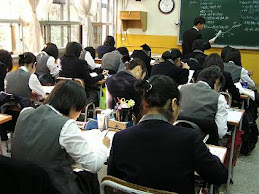Tara Parker-Pope of New York Times Health Editorial, October 29, 2007
Can kids have too much confidence?
An excess of praise may be doing kids more harm than good.
A cover story in this month’s Scholastic Instructor magazine asks whether kids today are “overpraised.'’ The concern is that by focusing on self-esteem and confidence building, parents and teachers may be giving real goals and achievement short shrift. The article cites a recent study in which eighth graders in Korea and the United States were asked whether they were good at math. Among the American students, 39 percent said they were excellent at math, compared to just 6 percent of the Korean eighth graders. But the reality was somewhat different. The Korean kids scored far better in math than the over-confident American students.
The notion that you can praise a kid too much is heresy to parents and teachers who have long believed that building self-esteem should be the cornerstone of education. If kids believe in themselves, the thinking goes, achievement will naturally follow. But confidence doesn’t always produce better students. Scholastic cites a 2006 report on education from the Brookings Institution’s Brown Center that found that countries in which families and schools emphasize self-esteem for students lag behind cultures where self-esteem isn’t a major focus.
The problem with this “rah-rah mentality,'’ as the magazine describes it, is that it can take away the sense of satisfaction that comes from genuine achievement. “Self-esteem is based on real accomplishments,” Robert Brooks, faculty psychologist at Harvard Medical School, told the magazine. “It’s all about letting kids shine in a realistic way.”
The downside of too much praise is that kids may start to focus on the reward rather than what they are learning. Worse, failure can be devastating and confusing for a student whose confidence is based on an inflated ego, rather than his or her actual abilities, the magazine notes. This doesn’t mean we shouldn’t praise our kids or that teachers shouldn’t try to engender self-confidence. But self-esteem should be the result of good grades and achievement, not false accomplishments.
Last month, Cognitive Daily reported that parents and teachers should be specific rather than general when they dispense praise. An example of general praise is telling a child, “You’re smart.'’ Specific praise would be to say, “You did a good job reading,'’ or “You did great on your math test.'’ Kids who receive general praise about their abilities are more likely to exhibit “helpless” behavior when they encounter problems with learning, compared with kids who receive specific praise about their achievement on a task. The reason: a child who knows she’s a smart girl feels defeated if she has trouble reading a sentence. But a child who has been told she is a good reader is more likely to have confidence in that specific ability and work a little harder to tackle a more difficult book.
Source: Washington, Ruby. "Are Kids Getting Too Much Praise?" Editorial. New York Times 29 Oct. 2007. 5 Jan. 2008 <http://well.blogs.nytimes.com>.
-Alice C.
Subscribe to:
Post Comments (Atom)

No comments:
Post a Comment